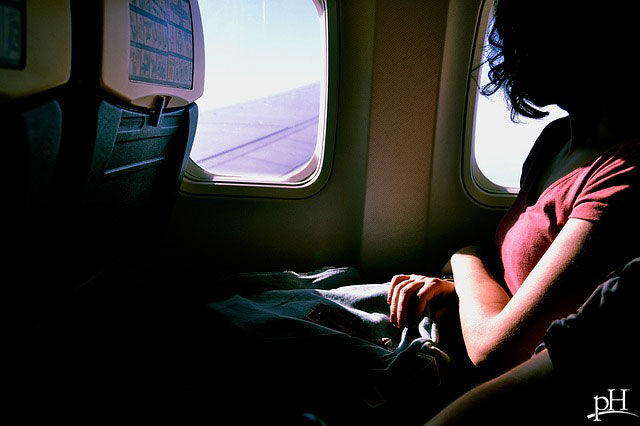Why jet lag may be your favorite athlete’s worst enemy on the field, and maybe yours too!
9 years ago | Travel
By pH health care professionals
Jet lag -- When you’re exhausted and cranky after flying across several time zones, and your body’s internal clock (circadian rhythm) gets all screwed up. Been there? Then you know what we mean! Being on the West Coast, we know what it’s like to fly east to visit family and find that we’re the only ones still wide awake at midnight. And then, of course, we fly back home only to find that our bodies want to wake up before the sun!
Now, it may come as a surprise to some avid sports fans, but even professional athletes are subject to jet lag (they’re only human, afterall!). And yes, it can affect their performance and ultimately affect the score of the game!
A recent study from Northwestern University, published in Proceedings of the National Academy of Sciences, shows that jet lag isn’t just a mental thing. Looking at data from more than 40,000 Major League Baseball games over 20 years -- including travel schedules as well as players’ stats for hitting, running, pitching and more -- researchers noticed that travelling in two or more time zones did affect how well the athletes played.
Here are some examples: Teams from eastern states that had just returned from a game out west had fewer stolen bases, doubles and triples. Pitchers from both home and away teams gave up more home runs after traveling east. And overall, the effects of traveling west to east were stronger than east to west.
Why?
The effects of jet lag have to do with the disruption in your body’s circadian rhythm. Your circadian rhythm is an internal biological clock, which regulates the timing of when you are sleepy and when you are wakeful throughout your day, the National Sleep Foundation explains.
When your body is synced to one time zone, it can be difficult to adjust to a new one right away.
How can jet lag affect your health?
Jet lag can make you fatigued and moody. You may have trouble staying alert and attentive. You also may encounter some digestive issues, like constipation or diarrhea.
What can you do about jet lag?
-
Plan ahead. Planning your arrival time can help you adjust better to the local time zone. Choose a flight that arrives in the evening, and then stay up until 10 p.m. local time.
-
Avoid alcohol or caffeine. It’s best to stay away from alcohol or caffeine three to four hours before bed. They may keep you awake!
-
Catch some rays. Get outside in the sun if you can. Daylight has a powerful effect on your circadian rhythm.
-
Try bright light therapy. Basking in the sun isn’t always an option. With bright light therapy, the idea is that mimicking natural sunlight can help your body adjust. There’s a device called HumanCharger (formerly called Valkee), which kind of looks like an iPod but with a big difference -- instead of music coming out of the earbuds, it’s a ray of bright light. The company says it can help with jet lag! If you’re flying east, you can use HumanCharger from morning until noon at consecutive two-hour intervals up to four times. If you’re flying west, you can use it from later afternoon to evening and same thing -- at consecutive two-hour intervals up to four times.
Now that you have a few strategies for being proactive, you can book your next trip with a better understanding of how to curb your jet lag.
The recent study may have focused on pro baseball players, but the fact is, whether you’re playing in the MLB or the Super Bowl, or if you’re like most of us who simply travel to visit family and friends, take business trips and enjoy vacations, jet lag can affect anyone! The key, like almost anything, is in being proactive.
So, now that we’ve got the jet lag handled, how about more information on how to have more energy in general? Check out our new book with a chapter on using minerals to beat fatigue.
Enjoy Your Healthy Life!
The pH professional health care team includes recognized experts from a variety of health care and related disciplines, including physicians, health care attorneys, nutritionists, nurses and certified fitness instructors. To learn more about the pH Health Care Team, click here.








Comments (1)
Franz
The best thing is to stretch out wake time to the new time zone day/eve patterns. Taking frequent daytime naps after arrival is the time when the body clock gets really messed up, so it is much better not to take them, but hang on till at least the later evening to go to sleep.